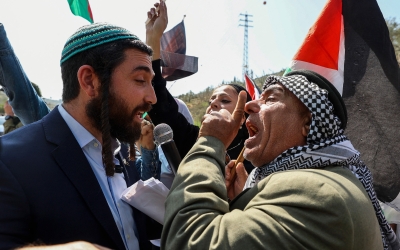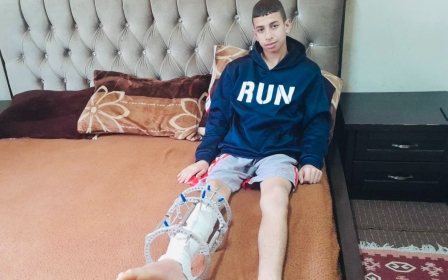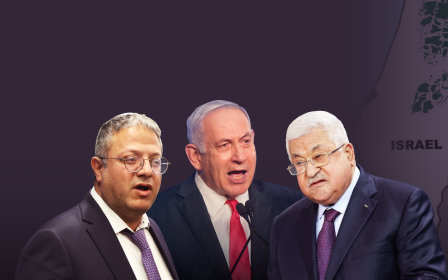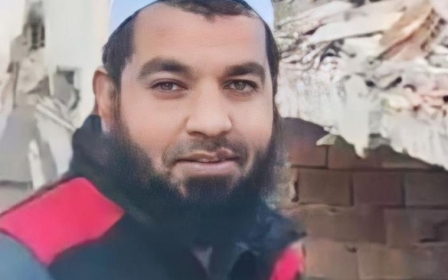Palestinian cities in Israel go on strike over killing of Palestinian doctor
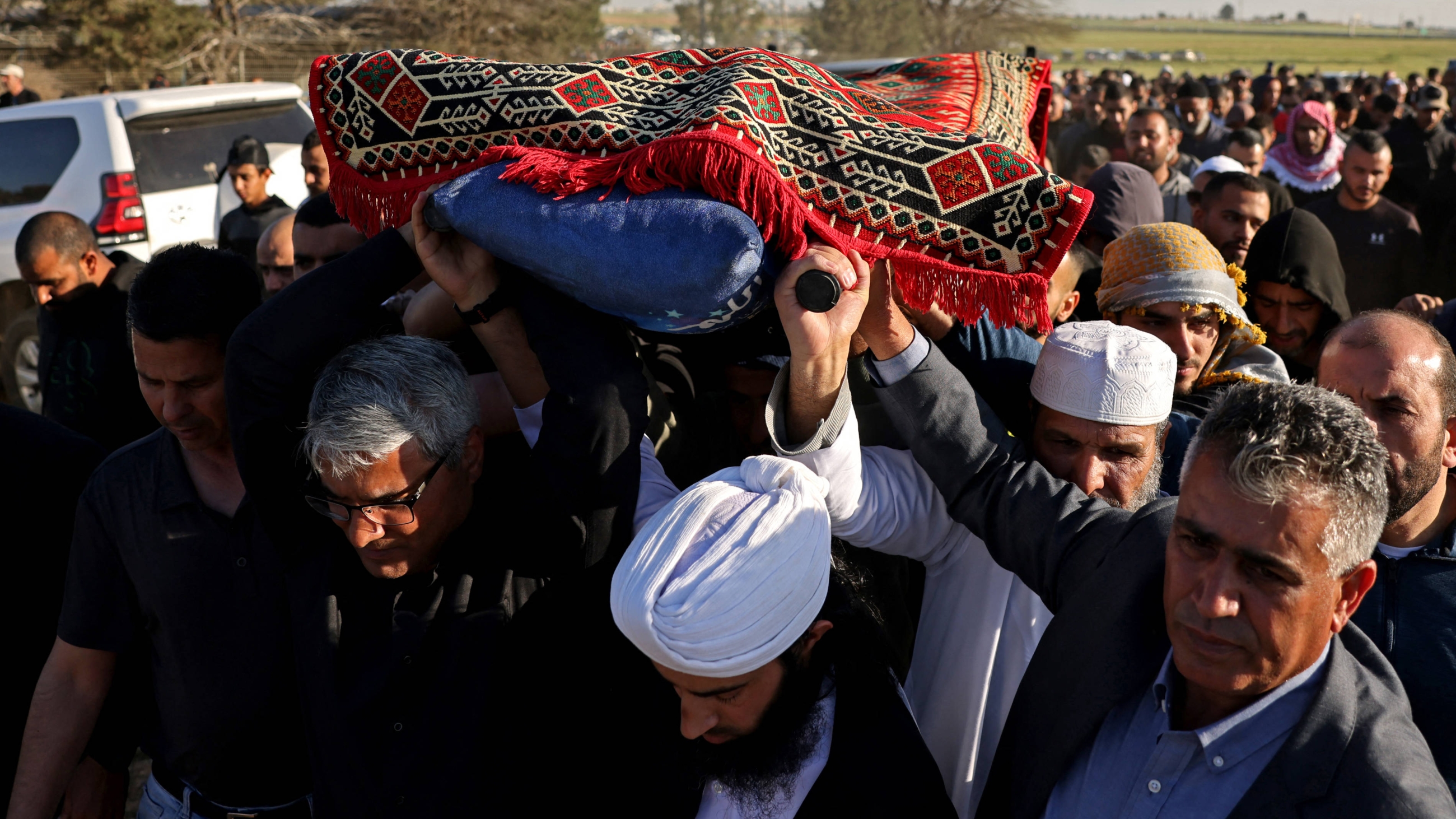
Palestinian cities and towns across Israel on Sunday observed a one-day strike following a call by the High Follow-Up Committee for Arab Citizens of Israel in response to the killing of Mohammed al-Osaibi, a Palestinian doctor who was fatally shot by Israeli forces.
Eyewitnesses said police shot Osaibi 10 times at the Chain Gate (Bab al-Silsela), one of the gates to the Al-Aqsa Mosque complex in the Old City of Jerusalem, on Friday evening after he tried to prevent them from harassing a woman trying to re-enter the mosque.
Israeli police said in a statement that the man tried to grab a soldier's weapon and was subsequently shot and "neutralised". Osaibi was a 26-year-old resident of the bedouin town of Hura in the Naqab (Negev) region in southern Israel.
Osaibi's family has disputed the police account of his death and demanded to see CCTV footage, Israeli media reported. Osaibi had recently earned his medical degree in Romania and returned to his hometown a month ago, the family said.
The Israeli police, meanwhile, stood by their original version of events and issued another statement on Saturday afternoon saying that the site of the attack was not covered by surveillance cameras.
New MEE newsletter: Jerusalem Dispatch
Sign up to get the latest insights and analysis on Israel-Palestine, alongside Turkey Unpacked and other MEE newsletters
Following an emergency meeting on Saturday in Hura, the High Follow-Up Committee for Arab Citizens of Israel called for a strike that includes all municipalities, public educational facilities and shops in Palestinian cities and towns in Israel.
"There are attempts to [push forward] a fabricated Israeli scenario to distort the truth and hide the evidence, which points to the Ben Gvir police and condemns them for committing the heinous crime against Mohammed al-Osaibi," the committee said in a statement in reference to National Security Minisiter Itamar Ben Gvir.
'It will not go unnoticed'
Palestinians, who have called Osaibi's killing "an execution", responded to the strike in great numbers, closing their shops and holding marches and vigils, where pictures of the doctor were raised.
Writer and political analyst Saher Ghazzawi said scenes from the strike brought back memories of the comprehensive strike that took place in Palestinian towns and cities in Israel in the early days of the Al-Aqsa Intifada in October 2000.
'Palestinian public opinion rejects the occupation police's account... this crime will not go unnoticed'
- Saher Ghazzawi, writer and analyst
"It isn't inconceivable to see things develop and take the same direction of escalation and the ignition of the Palestinian street. There's an atmosphere of tension being felt by Palestinian society following the murder of the young doctor," he told Middle East Eye.
Ghazzawi said that the tension comes in tandem with the racist practices and statements of the Israeli government and political parties "against everything that is Palestinian".
The vigils that took place in many Palestinian cities in Israel, at crossroads and town entrances, on Saturday, are expected to continue well into Sunday after Osaibi's funeral in his hometown, and are likely to turn into a mass demonstration.
"Palestinian public opinion completely rejects the occupation police's account that condemns the victim, so this crime will not go unnoticed," Ghazzawi said.
Osaibi is an only child, and was caring for his ailing father as he worked to get certified in Israel. As the whole town came to a standstill following the news of his death, Osaibi's family opened their home to mourners, as they waited for the Israeli authorities to release their son's body.
Ibrahim al-Osaibi said that the family rejects the police's claims that his cousin had tried to snatch the weapon of one of its forces. He added that Osaibi was unarmed and had tried to free the Palestinian woman being assaulted by the police.
"We consider it a crime, by all standards, for a young man to be shot just because he tried to defend a woman who was being subjected to abuse," said Ibrahim al-Osaibi.
'Field executions'
Israeli Prime Minister Bejamin Netanyahu has, meanwhile, praised the doctor's killing and said the police had "prevented an attack in the area".
The committee, an umbrella organisation representing Israel's Palestinian citizens, called for a special investigation committee to look into Osaibi's killing.
It also encouraged a massive turnout to his funeral in protest against all "occupation policies, oppression and racial discrimination".
The Mizan Foundation for Human Rights described Osaibi's killing as "a heinous crime" and part of "a systematic policy based on field executions and the killing of Palestinians".
"The policy of easily pulling the trigger against Palestinians has become a rooted 'culture' in the psyche of the Israeli security services, and a systematic policy that feeds on an atmosphere of incitement [and] murder," Mizan said in a statement.
Since the beginning of the year, Israeli forces have killed at least 87 Palestinians, including fighters and civilians, in the deadliest start to a year since 2000, according to the Palestinian health ministry.
On Saturday, Israeli forces killed 23-year-old Palestinian Mohammed Baradyah after he allegedly conducted a car-ramming attack near the town of Beit Ummar, north of Hebron, wounding three Israelis.
The weekend's escalation threatens to end a relative lull during the Muslim holy month of Ramadan so far, a period that usually witnesses an increase in confrontations between Israeli forces and Palestinians, especially in East Jerusalem as Israel tightens restrictions against Palestinians in the area.
Middle East Eye delivers independent and unrivalled coverage and analysis of the Middle East, North Africa and beyond. To learn more about republishing this content and the associated fees, please fill out this form. More about MEE can be found here.


